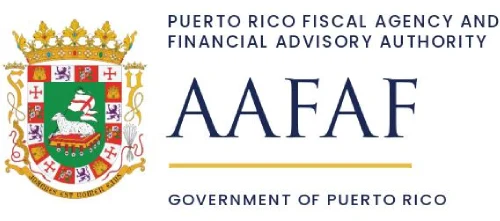SAN JUAN – Puerto Rico Treasury Secretary Francisco Parés Alicea announced this week that thousands of taxpayers will be able to claim an earned income tax credit (EITC) of up to $2,000 in commonwealth income tax forms filed for the taxable year 2019.
The Treasury chief estimated that the EITC, enacted in the Tax Reform Act of 2018 (Act 257), will distribute about $204 million to salaried workers in Puerto Rico. Taxpayers may claim an EITC of between $300 to $2,000, depending on income, marital status and number of dependents.
To qualify for the EITC, taxpayers must reside on the island, be single or married, be between 27 and 64 years of age, and qualify with certain income requisites as of Dec. 31, 2019, Parés Alicea said, adding that dependents must be the children of the taxpayer or his or her spouse who are 18 years old or younger, and students no older than 25 years of age.
“This seeks to formalize the relationship between employee and employer and, above all, to encourage people to enter the labor force,” he said during a press conference Monday.
Omar J. Marrero, executive director of the Fiscal Agency and Financial Advisory Authority (Aafaf by its Spanish acronym) and the commonwealth’s chief financial officer, said the EITC is a key component of Puerto Rico’s certified fiscal plan.
“The most significant thing about this initiative is that it will translate into lower tax payments for thousands of workers in Puerto Rico, which will be beneficial for the economy of the island,” he said.
The EITC will be calculated considering the following income and status categories:
Taxpayers without dependents: The credit will be up to a maximum of $300, when salary income received during the tax year is between $18,000 and $20,500. For married taxpayers, the salary income total must be between $18,000 and $21,750.
Taxpayers with one (1) dependent: The credit will be up to a maximum of $900 when the salary income received during the tax year is between $13,000 and $20,500. For married taxpayers, the salary income total must be between $13,000 and $24,250.
Taxpayers with two (2) dependents: The credit will be up to a maximum of $1,500 when salary income is between $16,000 and $28,500. For married taxpayers, the salary income total must be between $16,000 and $34,750.
Taxpayers with three (3) or more dependents: The credit will be up to a maximum of $2,000 when salary income is between $17,000 and $33,500. For married taxpayers, the salary income total must be between $17,000 and $42,000.
Taxpayers who derive income from other sources—such as interest and dividend income, alimony and child support, or capital gains—may also claim the EITC, as long as such income does not exceed $2,200 during the tax year, Parés Alicea said. However, independent contractors, married taxpayers who file separately, as well as taxpayers claiming the senior credit, do not qualify for the EITC, he said.
Another tax benefit enacted in the 2018 tax reform is a 5 percent discount on the amount of individual normal tax on Line 16 of the 2019 form. This benefit could come out to $410 million in lost tax revenue, the Treasury chief said, adding that the cost of the tax benefits will be offset by increasing revenues and a crackdown on tax evaders.
“All individuals, without income limit, will receive a 5 percent discount against the normal tax, which implies a reduction in the tax to be paid,” he said.
Parés Alicea urged taxpayers and tax return preparers to consult the department’s website (www.hacienda.pr.gov) or call 787-622-0123 to clear up any doubts. He said, moreover, that his agency will send teams of tax return preparers to the southern region affected by earthquakes to service taxpayers whose homes and businesses were damaged or collapsed and are living in temporary camps.
Employer deadline
Parés Alicea reminded employers Wednesday that they must all electronically file retention vouchers, or W-2 forms (499R-2/W-2PR), and reconciliation statements (499R-3), for tax year 2019, at Treasury’s online internal revenue system (SURI by its Spanish acronym) on or before Friday. He said the agency had received 248,000 more W-2 forms compared with last year.
The Treasury chief called on employers who cannot meet the deadline due to the earthquakes to request a 30-day extension through SURI. He said that late filing of employee W-2 forms could incur penalties, according to the Internal Revenue Code of 2011.
Source: Caribbean Business

